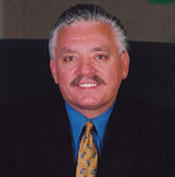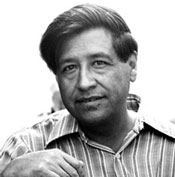FCNNEWSSOURCE
The story of Cesar Estrada Chavez (LatinBayArea)

In advance of May Day activities, more than 650 students vacated their classrooms throughout Los Angeles, as well as Orange and San Diego counties, on Mar. 30, demanding national and state holidays in honor of Cesar Chavez, a beloved farm worker, labor leader and civil rights activist.
Nativo Lopez, National Director of the Mexican American Political Association, believes that May Day is not just specific to immigration issues, but it generally centers on worker rights. He recently interviewed with Final Call Staff Writer Charlene Muhammad, expressing that within the context of Latino participation in May Day, certainly the demand for the Cesar Chavez Holiday recognition is being raised, and imparted the need for such recognition and how it is relative to the Black-Brown movement for unity.

Final Call (FC): What is your involvement with the Mar. 30 classroom walk-outs?
Nativo Lopez (NL): My involvement is basically supportive of the students, supportive of petition drives, supportive of legislative resolutions. Our over 100 chapters throughout the country, the majority in California, Texas and Illinois, are with the movement for a national holiday.
FC: Why should there be a national holiday in honor of Cesar Chavez?
NL: It’s important to recognize that Cesar Chavez was a national labor leader of working people and mainly agricultural workers, one of the most difficult sectors to organize, the least represented and protected by American law. So, it is not uncommon to other labor leaders that have been recognized for their historical contributions. This says that his contributions could be magnified by his taking on the most vulnerable group–the agricultural workers.
The thing is that America is a diversity of races, religions and nationalities. And unfortunately, what is portrayed in the media and in our education system gives the impression that historic leaders of this country are predominantly of one race, and that is not true.

FC: What is your response to some of the mainstream media’s recent portrayal of Mr. Chavez as a hater of so-called illegal aliens, or undocumented residents?
NL: There’s a grain of truth in that, but it has been magnified and exaggerated as a general position of Mr. Chavez, and that is not true. There was a lapse in the beginning of the 1970s; a lapse in a period of a difficult strike, when he made a practical decision to oppose undocumented immigrants working in the fields used by the companies to break the strikes.
This was a position that was a traditional position of the AFL-CIO (American Federation of Labor and Congress of Industrial Organizations), which was essentially sponsoring and bank-rolling the United Farm Workers, but upon receiving criticism, he changed his position and became one of the most ardent advocates for the legalization program in the 1980s.
I know this for a fact, because we worked together on the legislation and because of the lapse in his judgment and immediate correction that he made, but these right wing radio talk hosts and others that express the anti-immigrant views are attempting to use Mr. Chavez and say that he maintained an anti-immigration position, and that is absolutely false.
FC: Do you believe that it will take as long and require the same effort that Blacks and many others put forth toward securing a national holiday for Dr. Martin Luther King, Jr.? Why do you believe Blacks should become involved or be concerned that there is a national holiday in Mr. Chavez’s honor?
NL: It will take as long, if not longer, to secure national recognition for his place in American history as it did with Dr. King, and it is very relevant for African-Americans to support such recognition, because Cesar Chavez, as Dr. Martin Luther King, Jr., embodied an advocacy for all working people–all Americans, especially poor working people and people of color.
Certain leaders are more symbolic coming from their distinct groups, such as Dr. King, out of the Civil Rights Movement, and some would identify him somewhat as a Black civil rights leader. Similarly, Mr. Chavez advocated for civil rights for Mexicans and Latinos and some could pigeon hole him as a historical figure in the Mexican community.
But [Dr. King’s and Mr. Chavez’s] messages are universal; their messages and practices went beyond the bounds of their own racial or ethnic group.
FC: Thank you.












